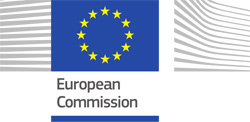Qur'an and Qital. A historical-critical and de-radicalised perspective on violence against the Other.
presentation

PROJECT COMPLETED (2017-2019)
The main goal of this research, developed by researcher Marie Curie framework Demichelis, was to offer a de-radicalised exegesis of violence against non-Muslims in the Koran. It analysed from the first verse uttered to the last chronologically, without altering the historical reality and thus the cruelty of the time of the Prophet Muhammad but destroying the sources of contemporary neo-Salafist fundamentalism.
Both violence as a religious premise and its adoption in Islam have become common practice at reference letter to a sharp increase in internal conflict: not only between Sunnis and Shiites, but also between Muslims who support different radical views in relation to other religions: Christianity, Judaism, Buddhism and atheism.
This topic may be considered very popular at the present juncture, however, the exegetical programs of study - which focuses on each individual verse dealing with Islamic revelation and violence against non-Muslims - is limited and usually does not relate to a historical-critical and metaphorical approach. This work set out with the threefold goal to understand, firstly, where and when each of the 'violent' verses has been uttered, the historical exegetical interpretation in relation to a literary and metaphorical understanding and, finally, the trivialised deconstruction that has been adopted by Islamic fundamentalism today.
However, before reaching this goal, it is also important to reconsider the concept of jihad, particularly at reference letter for the first century of Islamic history.
In the last forty years, the historical understanding of the first century of Islamic history has been deconstructed and analysed through an increasingly interdisciplinary approach with a variety of sources; archaeological, numismatic, inter-religious, and so on. This has profoundly reshaped the way it was once understood, leading to new insights into the early history of Islam.
Historians and experts on Islamic programs of study - such as John Wansbrough, Patricia Crone, Uri Rubin, G.R. Hawting, Fred Donner, Robert Hoyland - have since the 1970s contributed to a new imagining of the early history of Islam, to the point of reframing it within a more inclusive monotheistic milieu that clearly identified and structured a new religion (Islam).
The initial analysis highlights the understanding and effectiveness of jihad in the first century of Islam, debating with those scholars who - in recent decades and with greater impetus following the 9/11 attacks - advanced theoretical ideas about the early existence of an impact of Islamic jihad.
The need to reconsider early Islamic conquests through documents of Christian-Byzantine origin and not unambiguously written in Arabic highlights the historical inadequacy that early jihadism, as it has emerged in contemporary times, emerged from the beginning. On the contrary, this discussion should lead us to reconsider the contemporary perspective that Islamic violence and campaigns of conquest shaped the Islamic caliphate with a broad religious identity from the outset.
Between June 2017 and May 2019, this research has received funding from the European Union's research and Innovation Programme Horizon 2020, at framework of the agreement of the scholarship Marie Sklodowska-Curie (Ref. 746451).


